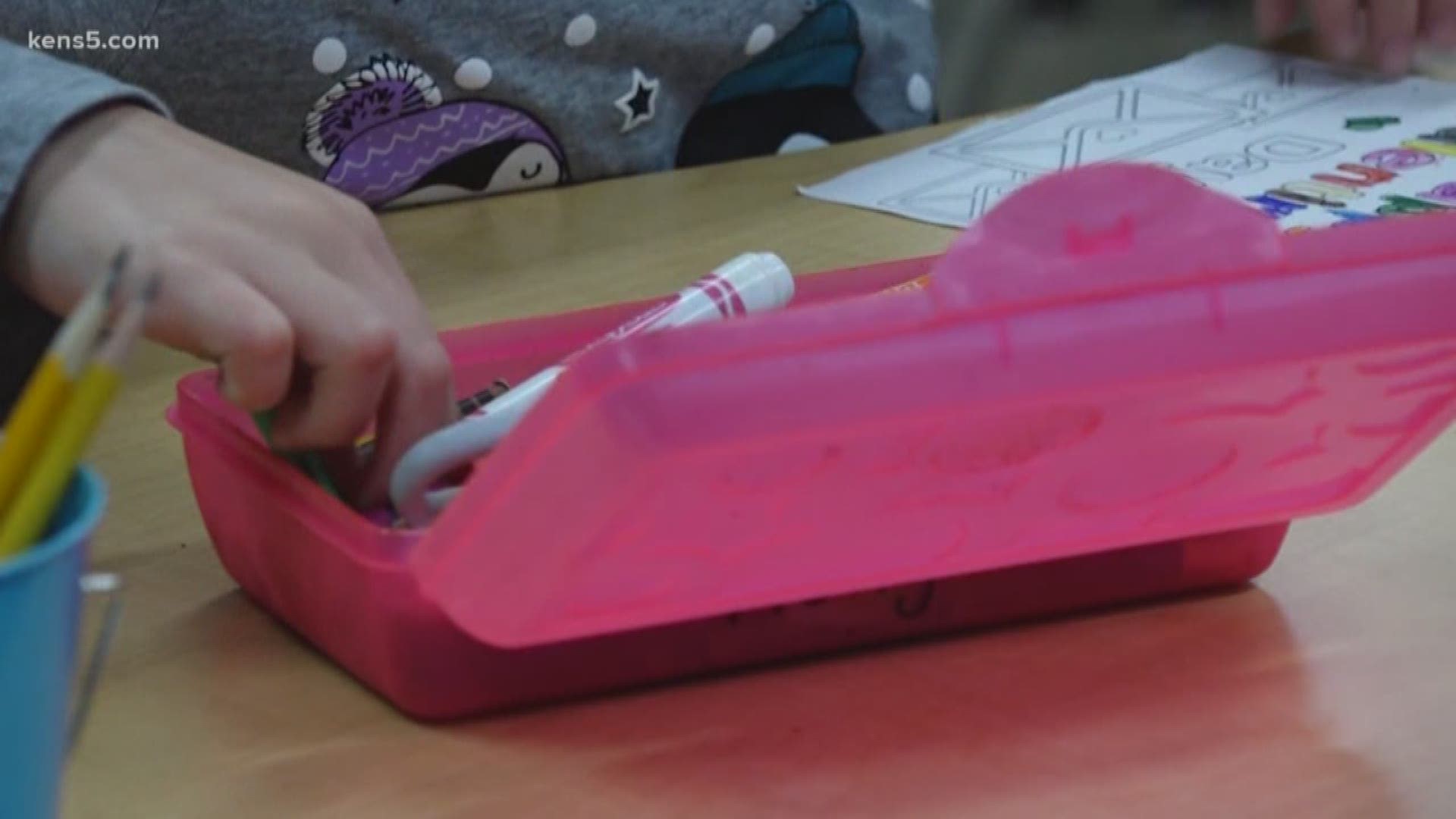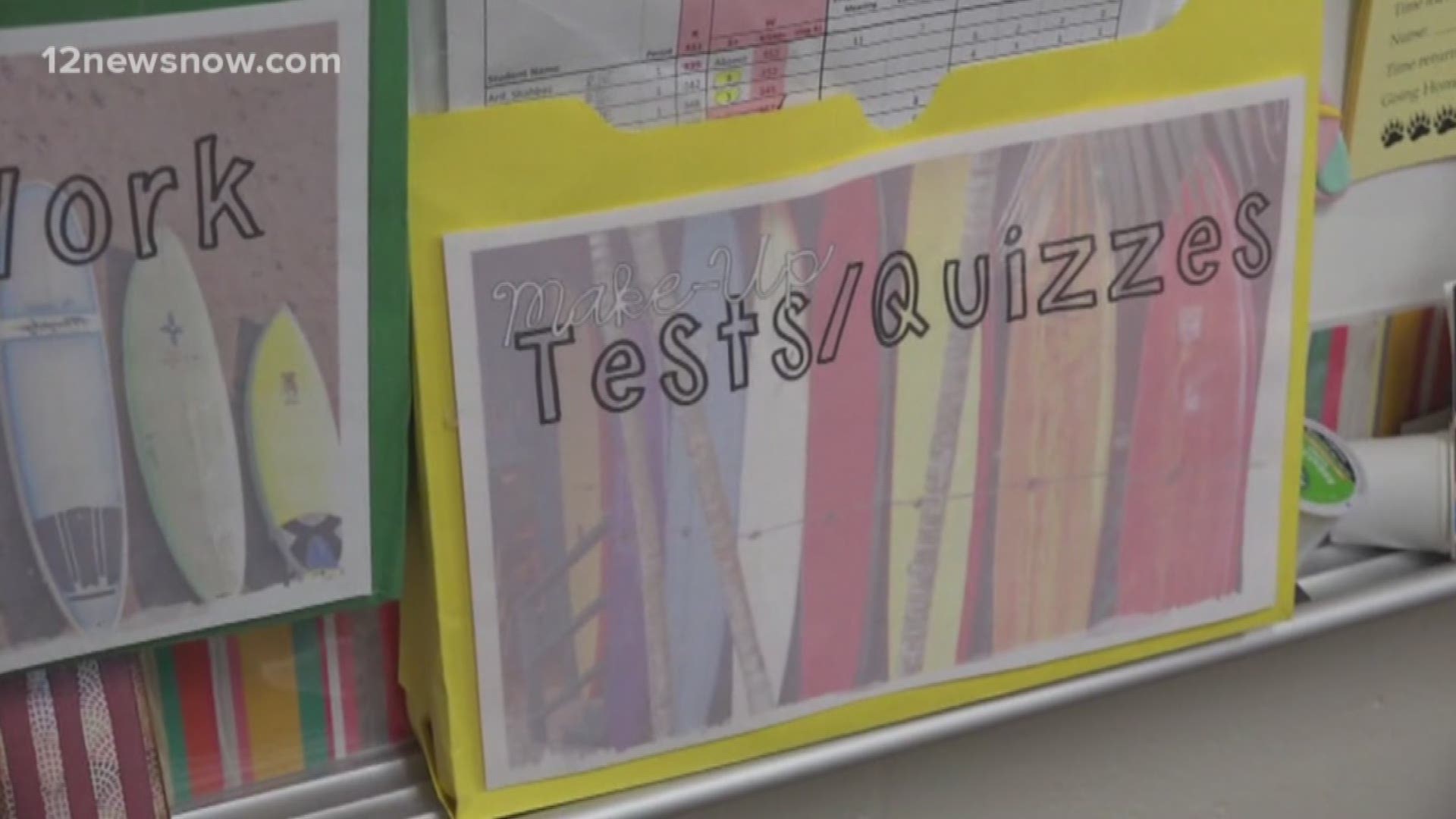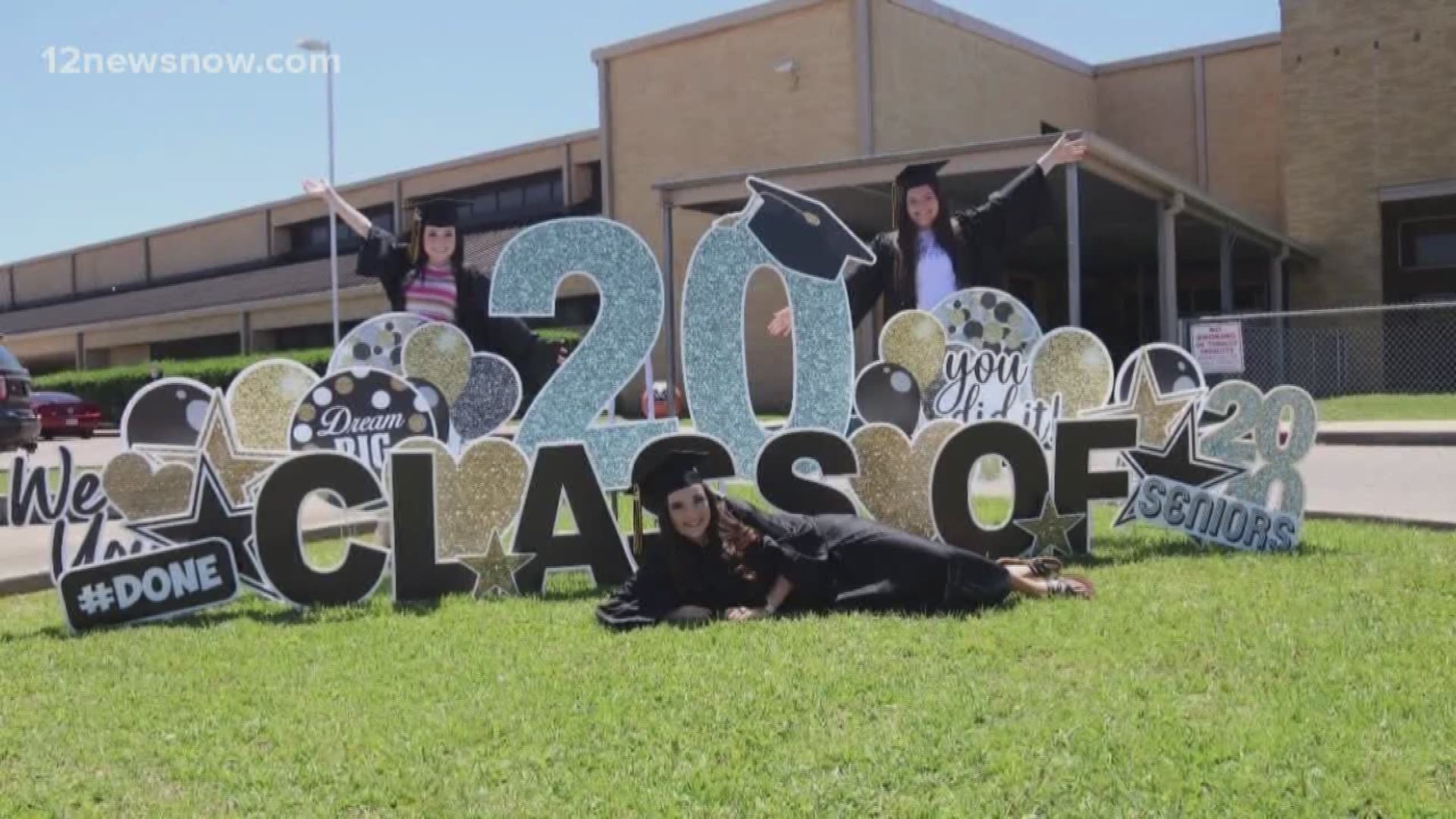BEAUMONT, Texas — The Texas Education Agency is building a calendar for the 2020-2021 school year that suggests earlier start date to the school year, a later end date as well as longer intersessional breaks.
TEA says it expects some students to be consistently absent during the next school year and warn that school closures could have a "devastating impact" on students' achievements.
The TEA said building a calendar that plans for and anticipates these scenarios will help minimize disruption. In the third page of its summary debrief from May 7, TEA's initial research shows students could return to school nearly a full year behind what normally occurs after a summer break.
Ideas from the TEA mirror ideas other states are looking at. California is also proposing an earlier start to the school year.
Other states have even taken more dramatic approaches -- including year-round schooling.
U.S. Education Secretary Betsy DeVos has said she hopes schools will test students in the fall to gauge where they are academically, particularly because this spring's standardized tests that might have provided a barometer were canceled.
But any remediation plans will be complicated by social distancing mandates that may require smaller class sizes and budget cuts that appear imminent because of falling local and state revenues. In surveys, many educators say the fall will be no time to pile on additional schoolwork.
“First and foremost, we need to recognize that we have young people in front of us who have gone through a traumatic experience,” said Andres Perez, a Chula Vista, California, high school teacher who warns against moving too fast to get back on track. "And right now, I think students and teachers really want to make school something that feels meaningful, that students are excited to go back to.”
Even students in schools that managed to issue devices for video lessons and assignments and transition to distance learning early on, using school-issued devices for video lessons and assignments, will have lost out from shortened sessions and limited interaction with teachers, experts say. The vast number of students still without technology in early May and those who have all but vanished from schools' radars will have fallen even further behind.
The effects of the lost learning could be felt for years.
“Even though we were closed for the last two-and-a-half months of school, it will take us literally — don’t fall out of your seat — it’ll take us a couple or three years to get through this,” Alabama Education Superintendent Eric Mackey told the Alabama Association of School Boards.
The “summer slide” in which students typically lose some ground during their break is expected to be far worse next fall, with projections by the nonprofit Northwest Evaluation Association suggesting some students could be as much as a year behind in math.



